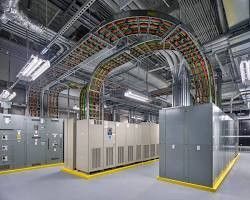Time to start a new life? Japan is a great career move for a data centre professional...

As the World increasingly relies on data like never before, data centre businesses are continuing to expand their operations in terms of both scale and geography. The Asia Pacific territory is now the fastest growing region in the World in this sector, where, for years, the traditional hubs for international businesses have always been Singapore and Hong Kong. However, the biggest trend of the last 1-2 years is that data centre operators and cloud providers are seeking out new markets, and they're seeking them out in a big way.
There are several new hot spots, and none seemingly more hot than Japan. With 1.5% of the World's population, and 6% of global GDP, there is an obvious attraction for some of the World's largest companies to set up and grow their operations. However, the market is not without it's challenges. We're going to focus on the challenge of finding the right skillsets with a particular focus on the language barrier.
Language, Language, Language
Recent studies suggest that only 8% of Japanese natives speak fluent English, which causes an obvious disconnect for English speaking companies entering the market. Combine that with the general skillset shortage of data centre professionals, and there becomes a very obvious and serious risk of things going wrong due to miscommunications. Interpreters are often engaged to fill the gaps but too often this is not the best solution as technical language does not always translate well.
Career Prospects
A career in the data centre industry in Japan could prove a smart move for a number of reasons. Some of which include:
1. Becoming internationally exposed to one of the most culturally stimulating environments on the planet
2. In a low skilled environment, as a subject matter expert in data centres, then it may be likely that you will have a chance to move in to leadership roles in a quicker timeframe than you may elsewhere
3. Japan is home to some of the largest planned data centre projects in the World. With the exclusion of China and America, you will struggle to find countries with as much new capacity planned over the next 5 years. Projects up to the size of an eyewatering 350MW are getting underway and 2021 will see more announcements of new projects and new entrants to the market.
OK, sign me up, I want to move!
As with any "permanent" cross border relocation, there is a process to go through in addition to the usual interview process. Fortunately, the Japanese government are actively taking steps to loosen immigration requirements and, as long as you have a willing sponsor (ie an employer who want to hire you) then it's not too difficult to get yourself the relevant working Visa. However, it must be recognised that your ability to effectively do business / deliver projects / run operations in Japan will be seriously enhanced if you are keen to integrate in to the wonderfully unique Japanese culture, which of course includes speaking the language. If I could give you one piece of advice, it would be take, or sign up to, a Japanese language course prior to even making a job application. The more you can learn, the better - but any basic level of ability to speak the language and base upon which to build, will not only better your career prospects, but will make integrating in to local society that little bit easier.















